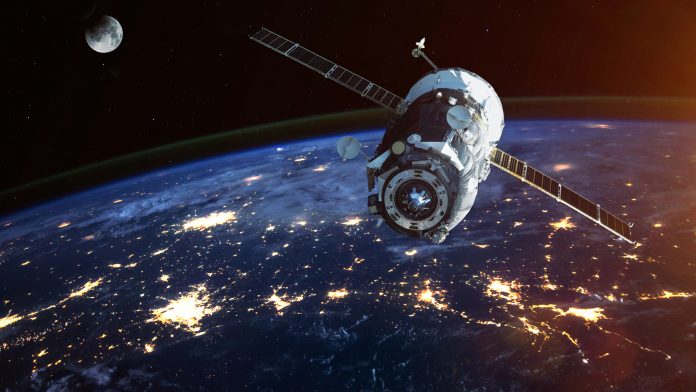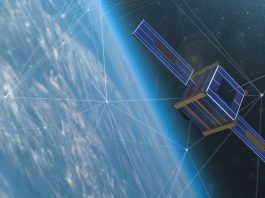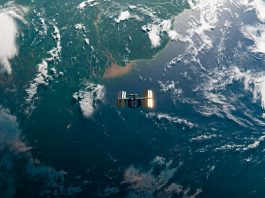The MFoC project places Madrid and Spain at the forefront of research and innovation in next-generation satellites.
Satellites play an important role in our modern society. Satellites can be used for geolocation, Earth observation, communications and scientific missions.
Mutually, they enable the precise localisation even in small devices such as smartphones, navigation in cities and seas, weather forecasting, fire detection and monitoring, or the broadcasting of soccer matches in real-time, as well as providing Internet access to remote locations.
The aerospace sector is currently undergoing a revolutionary transformation, because the launching of satellites, which is necessary to put them into orbit, is becoming ever more affordable. However, due to the replacement of components in black boxes by implementing coding in the satellite that provides the same functionality, this software is now playing a predominant role in each of the components of the satellites. This makes the complexity of these systems error-prone and their manufacturing slower and more expensive.
Madrid Flight on Chip project (MFoC)
The Madrid Flight on Chip (MFoC) project, co-funded by the Madrid Regional Government with ERDF (European Regional Development Fund), is a three-year project that began in 2019 and is estimated to end in 2022. One of its objectives is to place Madrid and Spain at the forefront of research and innovation in the production of next-generation satellites.
MFoC is a research and innovation project linked to the RIS3 Smart Specialisation Platforms program whose scientific objective is to create new techniques for the development of future generation aerospace satellite systems.
The project explores and analyses hardware and software techniques in order to develop aerospace systems that are radically different from ones currently available and is expected to enable much more cost-effective satellite missions with shorter development times. The confederation of the project is composed of the IMDEA Software Institute, together with SENER, Carlos III University, GENERA, CENTUM, REUSE, and MARM.
The critical role of the IMDEA Software Institute
The IMDEA Software Institute oversees the study of how to guarantee software reliability in new-generation space satellites, improving them to be more efficient, reliable, and secure. To achieve this, they employed a team of researchers (José Francisco Morales, Fernando Macías, Daniel Jurjo, and Juan Francisco García) under the direction of Alessandra Gorla, one of the world leaders in her field.
This team led by Gorla is devoted to developing techniques tailored to the aerospace industry for analysing, verifying, and validating existing software in order to propose paths to optimise processes without dropping security. One of the things they are currently implementing is the automation of processes that are currently still being done manually. It is estimated that their proposals could reduce development costs by 60%.
“Our mission right now is that the testing of these systems, the verification of the software, and the continuous integration are automatically generated,” said Alessandra Gorla. “So, when there are any changes or errors, they can be detected and corrected automatically, and that means big cost savings.”
Ultimately, if satellite production is cheaper without compromising the importance of security, the satellite industry will be able to offer more services over a wider geographical range. This means that it could potentially end the digital divide in Spain, provide internet service to those in remote and rural areas, improve the accuracy of the location tracking of a lost or stolen phone.
Additionally, according to the researcher Fernando Macías, “satellite software is not like the one for a smartphone, that, if it has bugs, you can just update the version and that’s it. Satellites cannot fail because otherwise they would not stay in orbit and could become space junk”.
Scientific breakthrough and effective innovation of next-generation satellites
This project has the potential not only to increase the immediate competitiveness of the Madrid Regional Government in the satellite sector, but will also connect the academic sector with the industry. In this way, academics will transfer the technological results so that the industry can apply them in their manufacturing processes. This connection will also allow the industry to directly transfer concrete problems to the academy that need to be solved in order to advance towards a society that has technology at its service.









